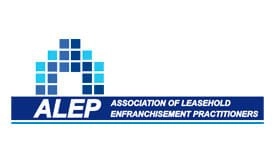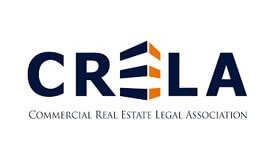The quickening pace of infrastructure development, in Greater Manchester, Cheshire and London clearly indicates the wider use of compulsory purchase powers . Compulsory Purchase Orders (CPO), are an order put forward by an Acquiring Authority (AA) such as a local authority or highways agency which forces you to sell up, so that they can remove your property to make way for a development for the benefit of the local community or general public interest. CPO’s as they’re more commonly known, can be tricky to understand and even trickier to challenge.
What to do if you are affected by a Compulsory Purchase Order
If you find yourself in this unfortunate situation, then it’s vital that you understand the in’s and out’s of this complicated process. It’s no secret that if you know what you’re doing, then you have a much bigger advantage when it comes to negotiating better terms and compensation for yourself.
If your land, business or home is to become the target of a Compulsory Purchase Order, these are my 10 top tips you should consider when deciding what action to take:-
1. Forcing you to sell
It’s important to note that when the public body applies for a CPO, this does not automatically give them the power to force you to sell up immediately. Instead, they are simply making an application to the government for the power to be able to make you sell, and they need to prove that the development is for the “greater public good.”
2. Familiarise yourself with the procedure
CPO’s can be difficult to understand. To make things easier for yourself, try to familiarise yourself with the procedure of CPO’s, for example what one is, how they are made, what your rights are and just what powers the acquiring authorities and local councils hold over you.
3. Time Frame
If CPO powers have been granted by the government to the public body, then this power needs to be exercised within 3 years of the confirmation. This would involve either being served by a notice to treat or a general vesting declaration. If you are not served by either of these within the three-year period, then the public body would have to apply for another CPO and would still owe you compensation.
4. General Vesting Declaration
Unless all property owners sign their consent, a general vesting declaration cannot be made until after you have received 2 months’ notice. Once the two months have expired, you will then receive confirmation of the date in which the authority will take possession, but you must receive at least an additional 28 days’ notice.
5. Notice to Treat
This is a request from the local authority to agree a price for your property with you, and will be served alongside a notice of entry- which must give you at least 3 months’ notice, following the Housing and Planning Act 2016. The price paid for your property must be the Open Market Value, and the amount of compensation owed is often confirmed on the date of entry.
6. Challenging a CPO
A Challenge to a CPO must be made within 6 weeks (Acquisition of Land Act 1981) on one or more of 3 grounds: (1) The powers granted are Ultra Vires (2) Procedural Rules have not been followed correctly and/or (3) The Minister/Inspector has not acted properly in reaching a decision. If successful, the High Court can quash all/part of a CPO. The decision could also be judicially reviewed.
7. Blight Notice & Claim
Where the value of a property has been reduced by certain categories of planning or other development proposals, anyone with a qualifying interest may be entitled to serve a blight notice on the body responsible for this requiring them to buy the property at its untainted value.
8. Business Owners
Businesses can receive compensation for reinstatement and disturbance costs. Reinstatement would consider the cost associated of reinstating the use in another location. Disturbance claims would consider moving stock and equipment, architect fees, maintaining two properties during removal, loss of goodwill and temporary loss of profit.
9. Persons considered for Compensation
The following persons are usually considered for compensation: Any person who is party to the conveyance of an interest; Mortgagees; Persons with equitable rights; Lessees; Short-term tenants; People with benefit of rights such as restrictive covenants and easements. There are also certain pre-qualifications to consider in some instances.
10. Take Early Advice
Obtaining legal advice from our expert team at Monarch Solicitors is vital to ensuring that you mitigate your losses and secure compensation. The laws surrounding CPO’s can often be confusing, and so you’re going to want help from people that know exactly what they’re doing, to ensure that the negotiations start off on the right foot.













